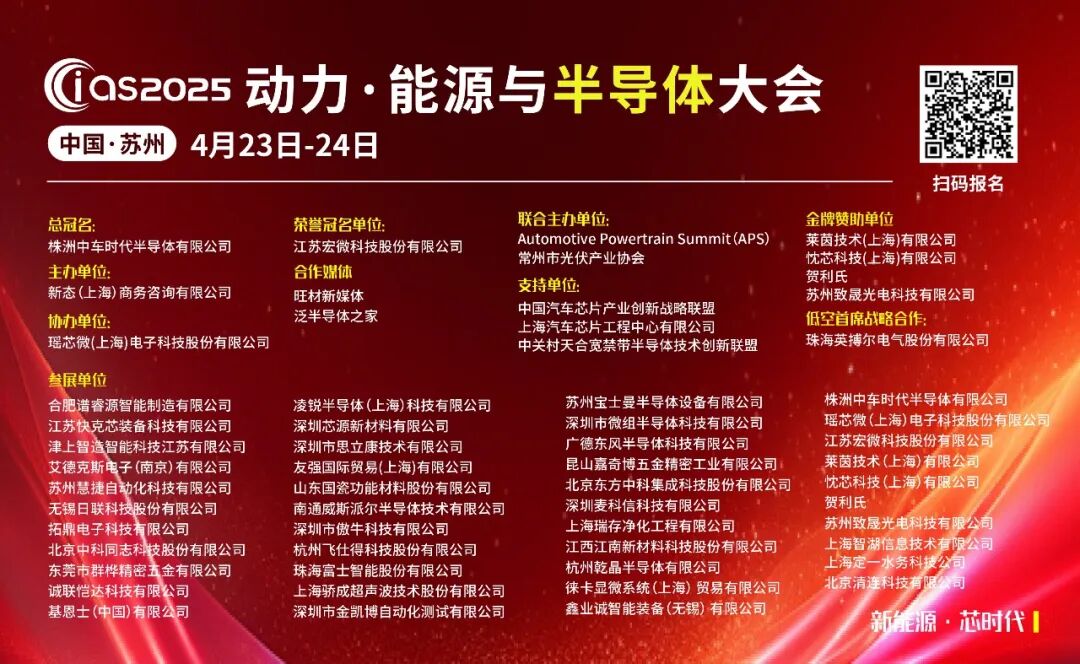
 Follow our official account, click the top right corner of the homepage ” · · · “, and setas a star to receive real-time updates on the latest news about automotive materials and chips.
Follow our official account, click the top right corner of the homepage ” · · · “, and setas a star to receive real-time updates on the latest news about automotive materials and chips.
Recently, the China Semiconductor Industry Association issued a notice regarding the “Rules for the Identification of the ‘Place of Origin’ of Semiconductor Products”, stating that according to the relevant provisions on non-preferential origin rules, the place of origin of “integrated circuits” is determined based on the four-digit tariff number change principle, meaning that the wafer fabrication site is recognized as the place of origin. In this regard, the China Semiconductor Industry Association recommends that the place of origin for imported customs declarations of “integrated circuits”, whether packaged or unpackaged, should be declared based on the location of the “wafer fabrication factory”.
Recently, due to China’s increased tariffs on U.S. imports, this means that under the new rules, chips fabricated at U.S. wafer factories will incur additional tariffs when imported into the domestic market. Jiwei Network has compiled a list of wafer factories located in the U.S. for industry professionals’ reference.
According to statistics, there are four foundries with wafer factories in the U.S., including TSMC (2), GlobalFoundries (3), Tower Semiconductor (2), and X-Fab (1). There are also six IDM companies with wafer factories in the U.S., namely Intel (4), Texas Instruments (5), ADI (3), Micron Technology (3), NXP (4), Infineon (6), and Samsung (2).
TSMC
TSMC is the world’s leading foundry, headquartered in Taiwan, China, with the largest market share in chip manufacturing, providing foundry services for well-known companies such as MediaTek, Apple, and NVIDIA.
Currently, TSMC has two wafer factories in the U.S., located in Arizona (12-inch wafer factory – TSMC Arizona Corporation) and Washington (8-inch wafer factory – TSMC Washington, LLC and Wafer Fab 11).
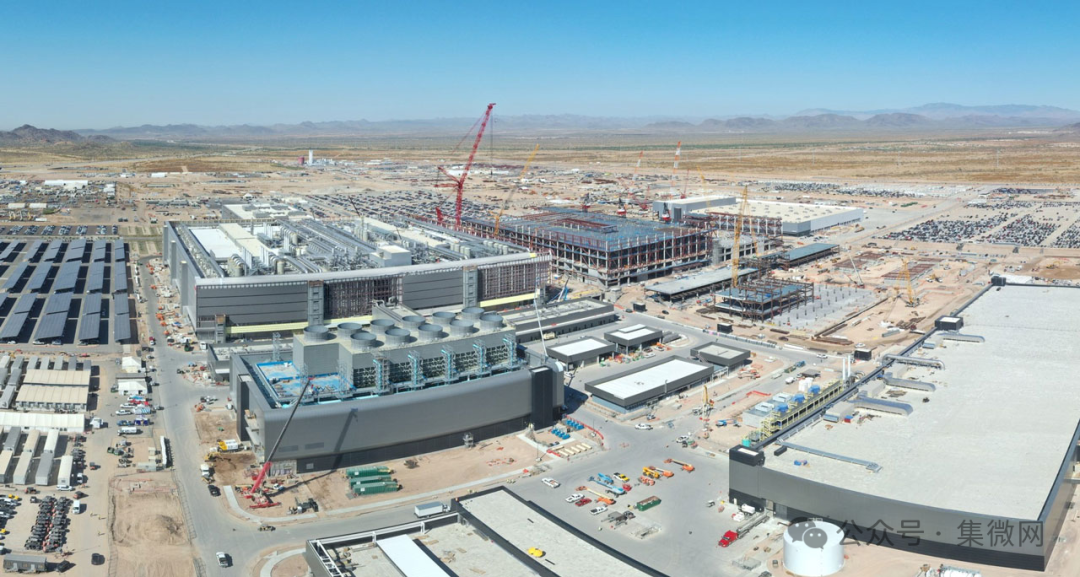
(TSMC Arizona Wafer Factory – TSMC Arizona Corporation)
Texas Instruments
Texas Instruments has a long history of internal manufacturing operations, with a global presence and regional diversification. Among its 15 manufacturing bases worldwide, there are several wafer manufacturing plants, packaging testing plants, and bump and probe plants. Currently, Texas Instruments has five wafer factories in the U.S., mainly located in Texas, Utah, and Oregon. Approximately 90% of TI’s wafer manufacturing is completed in its own factories, which are primarily concentrated in the U.S.
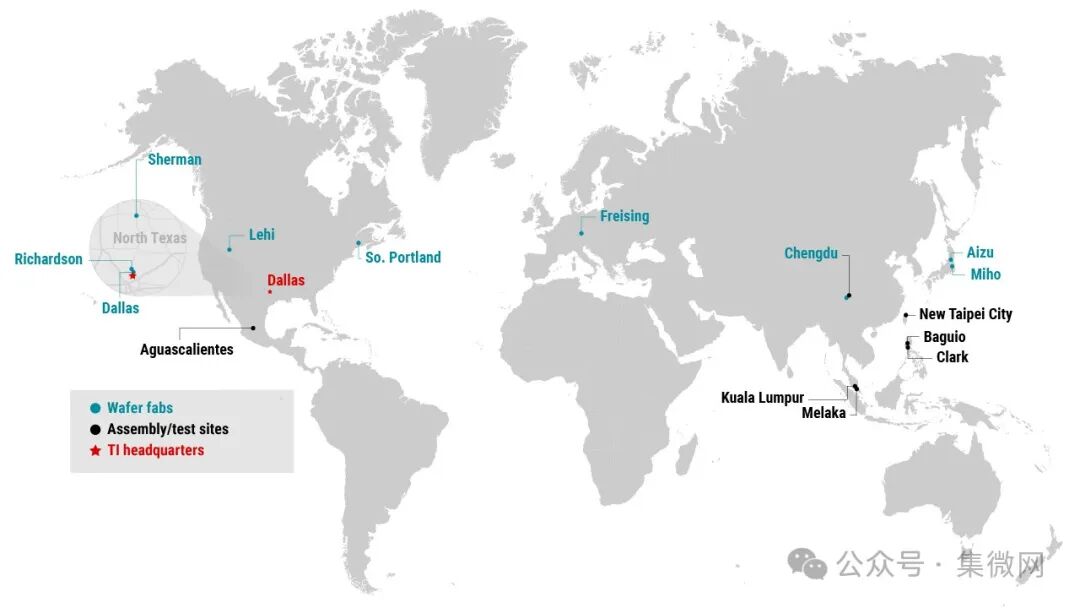
(Global distribution of Texas Instruments’ manufacturing bases)
ADI
ADI has three wafer factories in the U.S., located in Massachusetts, Washington, and Oregon. The company is expanding its manufacturing capacity both internally and externally, with internal investments expected to double its production capacity in the U.S. and Europe by the end of 2025. Approximately 30%-40% of ADI’s wafer capacity comes from its own factories in the U.S., while the rest relies on external foundries (such as TSMC, UMC) and overseas factories (such as Limerick, Ireland).
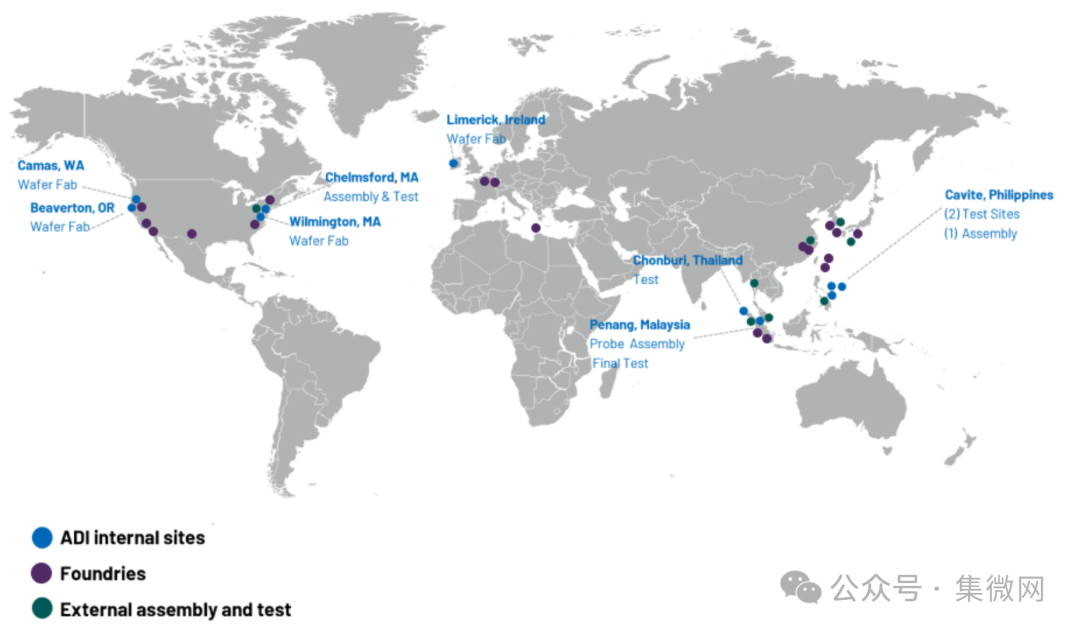
Intel
Intel is not only a leading IDM company globally but also provides foundry services. The company has three operational manufacturing plants in the U.S., located in Arizona, New Mexico, and Oregon, and plans to build a new wafer factory in Ohio in the future. Approximately 20%-30% of Intel’s wafer capacity comes from its own factories in the U.S., while the rest relies on external foundries (such as TSMC, UMC) and overseas factories (such as Fab 34 in Ireland, Fab 28 in Israel).
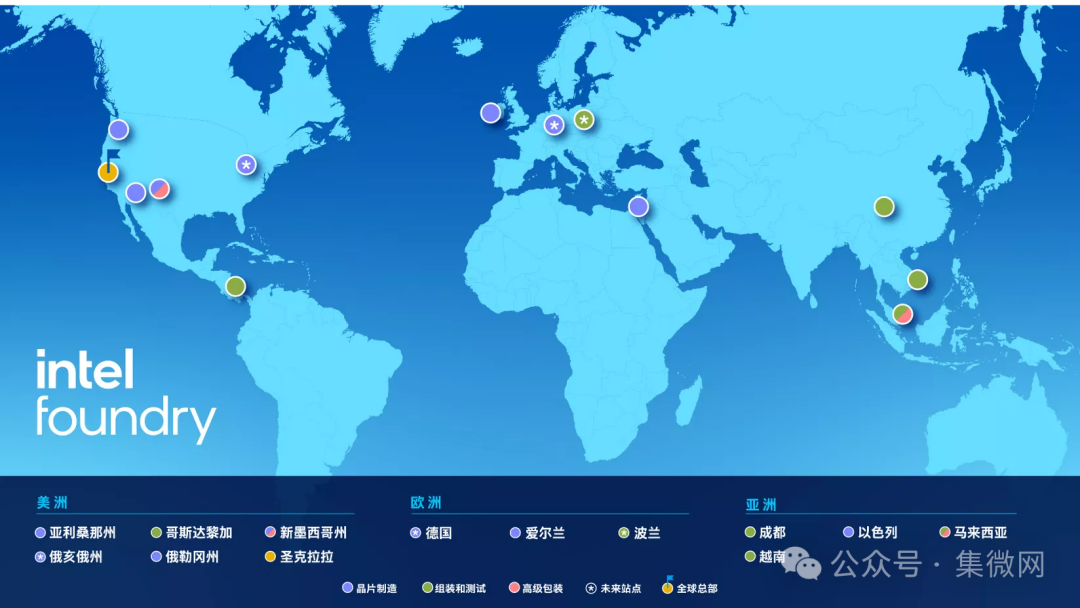
(Global distribution of Intel’s manufacturing bases)
Micron Technology
Micron Technology has over 30 offices worldwide, 11 manufacturing bases, and 13 customer labs. Currently, it has three manufacturing bases in the U.S., located in Virginia, Idaho, and New York. Approximately 10%-15% of Micron’s wafer capacity comes from its own factories in the U.S., while the rest relies on external foundries (such as TSMC, UMC) and overseas factories (such as Japan and Taiwan).
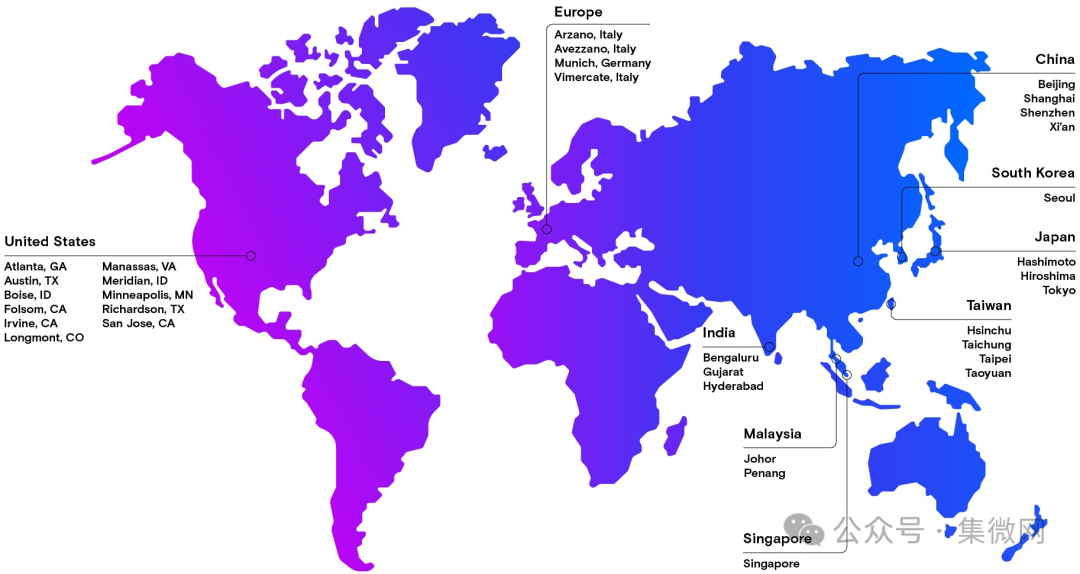
(Global distribution of Micron)
NXP
NXP operates four wafer manufacturing plants in the U.S., two of which are located in Austin, Texas, and the other two in Chandler, Arizona. The representative products of the wafer factories include MCUs, MPUs, power management chips, RF transceivers, amplifiers, sensors, and RF GaN products. Approximately 30%-40% of NXP’s wafer capacity is satisfied by its own wafer factories in the U.S., which are mainly focused on automotive and industrial semiconductors.
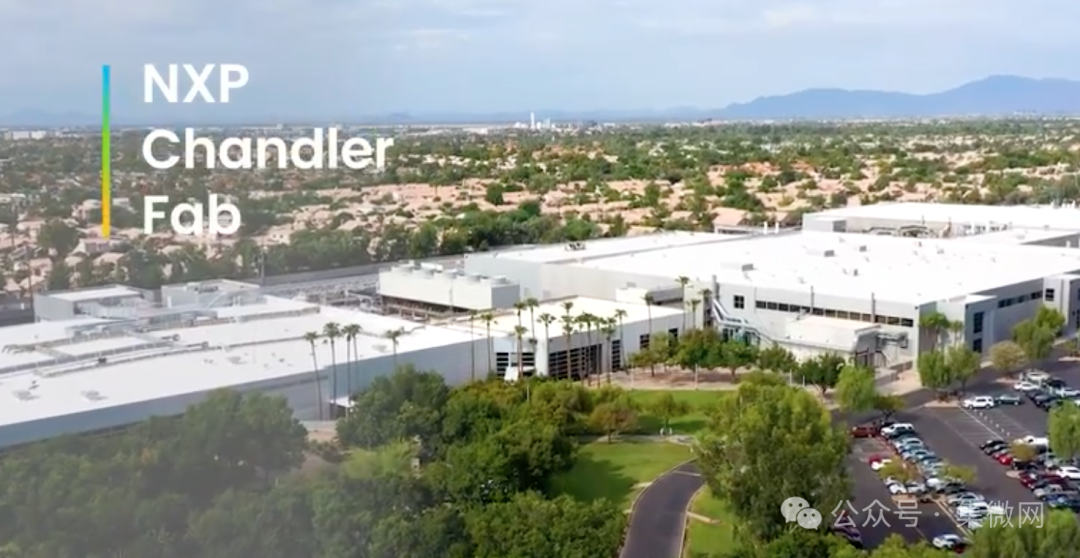
(NXP’s RF GaN wafer factory in Chandler)
GlobalFoundries
GlobalFoundries is a semiconductor foundry company headquartered in California, USA. The company originally spun off from AMD’s manufacturing division and produces not only AMD products but also collaborates with companies such as IBM, ARM, Broadcom, NVIDIA, and Qualcomm.
Currently, the company has three wafer factories in the U.S., located in Malta, New York (mainly 14nm), East Fishkill, New York (mainly 22nm), and Vermont (mainly 90nm).
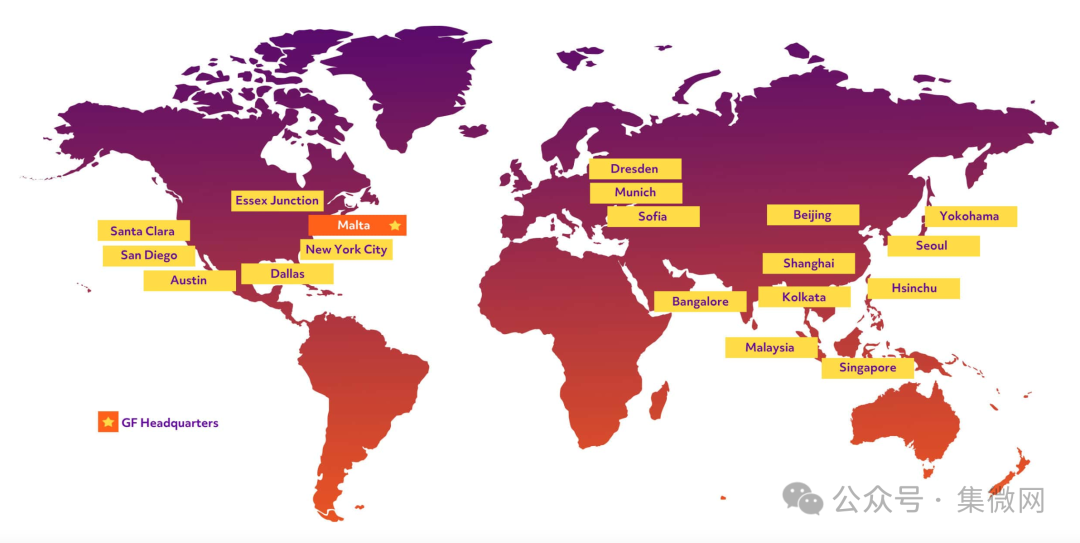
(Global distribution of GlobalFoundries)
Samsung
Samsung has two wafer factories in the U.S., located in Austin and Taylor, Texas. The largest wafer factory in the U.S. is located in Austin, providing wafer manufacturing from 65nm to 14nm processes. The newly built 5 million square meter wafer factory in Taylor further expands service and production capacity.
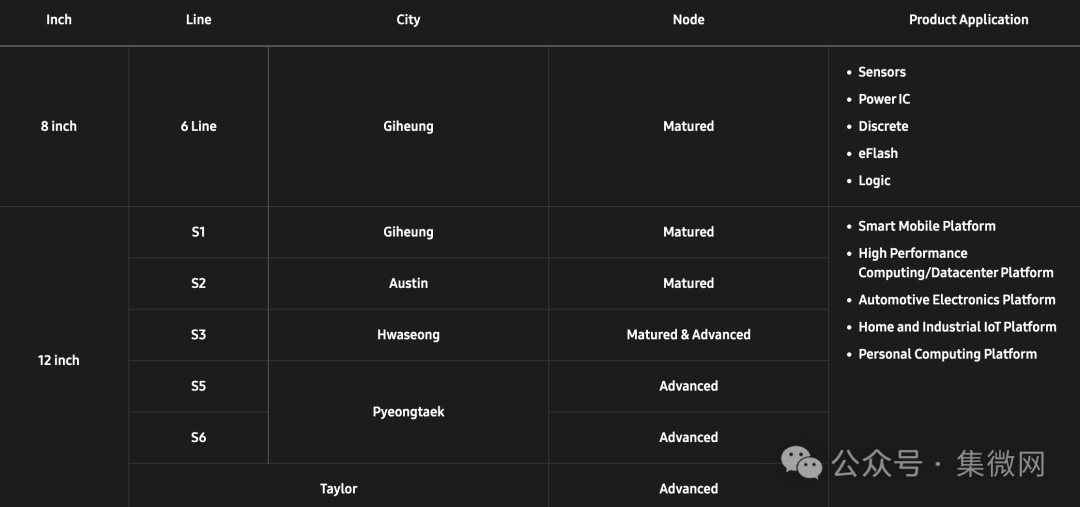
(Samsung’s wafer factories in the U.S. and Korea)
Infineon
Infineon, headquartered in Germany, primarily provides semiconductor system solutions and has six production bases in the U.S., including manufacturing, assembly, and production, located in Washington, California, Arizona, Colorado, Texas, and Massachusetts. Approximately 20%-30% of Infineon’s wafer capacity comes from its own factories in the U.S., while the rest relies on external foundries (such as TSMC, UMC) and overseas factories (such as Dresden, Germany, and Kulim, Malaysia).
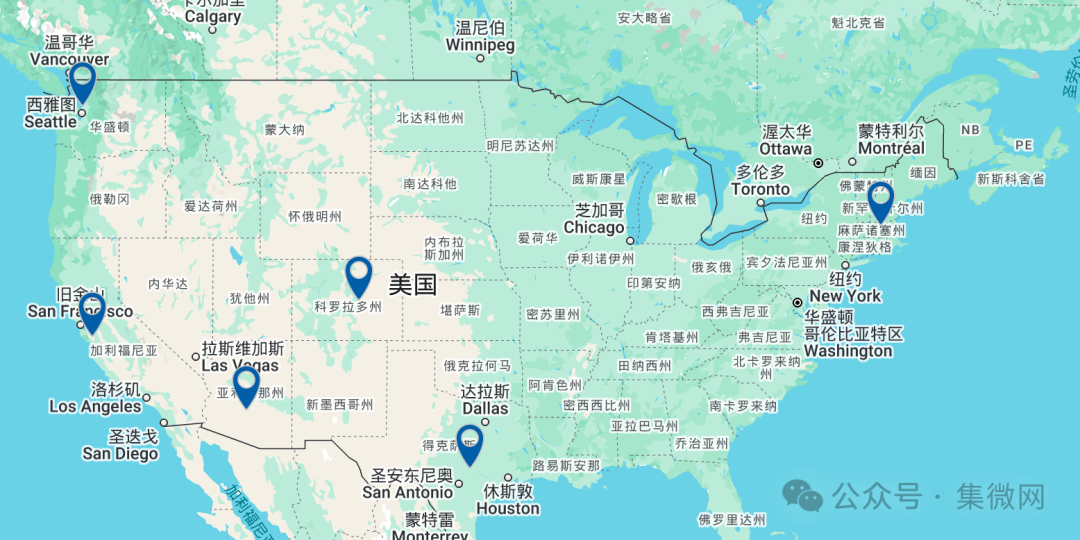
(Distribution of Infineon’s production bases in the U.S.)
Tower Semiconductor
Tower Semiconductor is an Israeli semiconductor foundry specializing in providing customized analog solutions for differentiated products, offering cutting-edge process technologies.
The company has two wafer factories in the U.S. (Newport Beach, California, and San Antonio, Texas) and can utilize Intel’s New Mexico factory’s 300mm capacity corridor, mainly producing CMOS, CIS, RF analog, MEMS, power, etc.
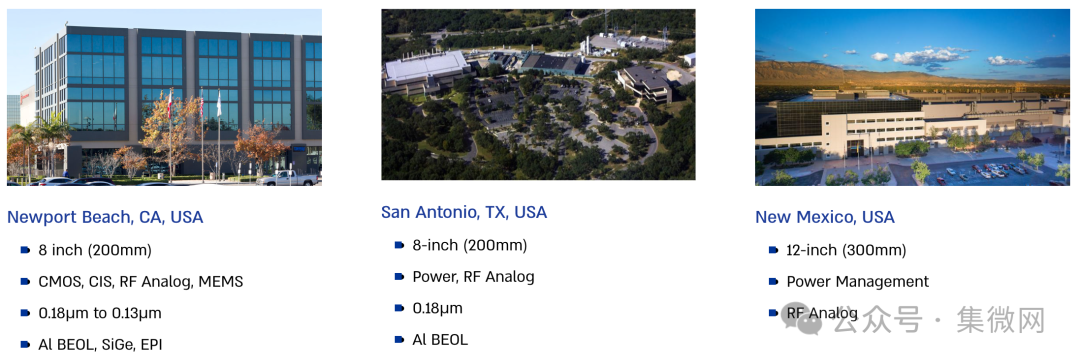
(Tower Semiconductor’s three foundries)
X-Fab
X-FAB is one of the world’s leading analog/mixed-signal semiconductor technology foundries, focusing on automotive, industrial, and medical applications, headquartered in Germany. The company currently has one foundry in the U.S., mainly producing CMOS mixed-signal chips and a range of SiC products.
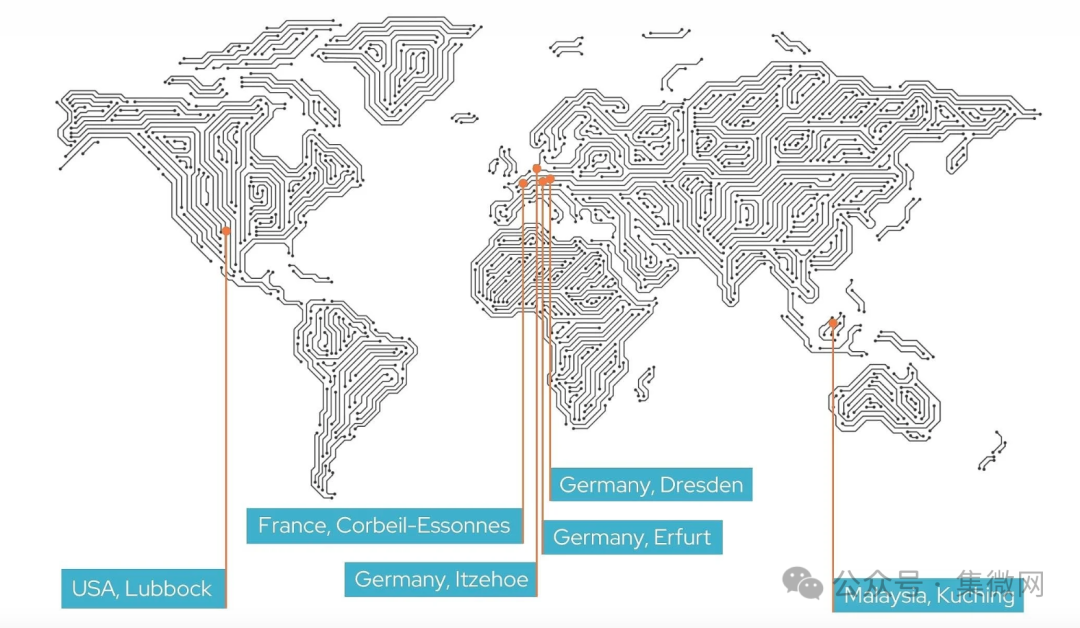
(Global distribution of X-FAB’s foundries)
Source: Jiwei Network
Focus Professional Dedicated


Distribution Map Available





